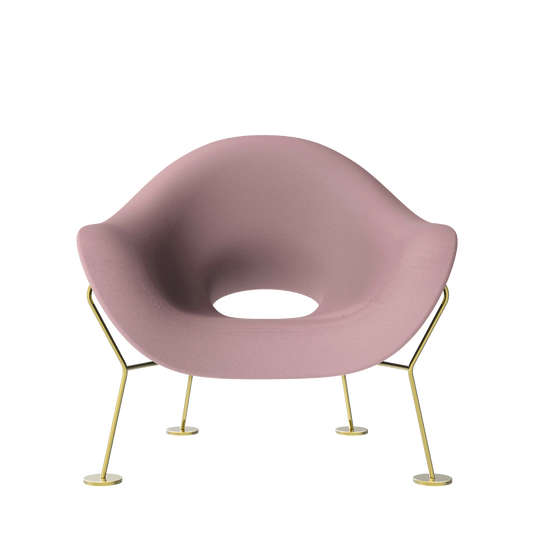컬렉션: Andrea Branzi
Italian design is indebted to architect and designer Andrea Branzi, born in Florence in 1938. Considered one of the primary exponents of Neo-modernism, Branzi is internationally recognised as one of the key figures in design from the 1960s to today. He obtained his degree in architecture from Florence University in 1966. Along with other projects, his graduation thesis is now archived at the Centre Pompidou in Paris, which has hosted a permanent Branzi exhibition since 2017.
From 1964 to 1974, Branzi was part of the Archizoom Associates collective, founding it with colleagues Paolo Deganello, Massimo Morozzi and Gilberto Corretti. This avant-garde group symbolised the desire to disrupt the canons of architecture, contrasting the modern movement - considered obsolete and self-referential - with carefree Pop culture. During the 1960s social protests, Archizoom sought to break with the past, freeing even architecture from the constraints that confined it. They did so with provocative boldness in fields ranging from product design to clothing to furniture and fashion. The Safari Chair, the Dream Beds, or the Mies chair are some of the objects deliberately designed to scandalise good bourgeois taste. On an urban level, their thinking about the city of the future was significant - theorised in the "No stop city" project, a new concept of a city no longer limited by architectural volumes but fluid and indefinite, defined by the flows of people and goods.
Ettore Sottsass defined Archizoom as the "good bad kids" who were not afraid of the judgement of others and provoked panic in a genuine and disinterested way. The Archizoom era lasted about ten years but left an indelible mark on design and architecture.
Passing away on Oct. 9, 2023, Andrea Branzi wrote numerous books on the history of design, was a full professor at the Faculty of Design at the Milan Polytechnic, and in 1982 was among the founders of Domus Academy, the first international postgraduate school of design. In 1994 he was awarded the Compas d'Or for lifetime achievement, and in 2018 he received the Rolf Schock Prize from the Royal Academy of Fine Arts in Stockholm.
-
Century (Request Info)
공급업체:Memphis주문제작 유럽도매가 해상운송 6개월~가격문의 -
Gritti (Request Info)
공급업체:Memphis주문제작 유럽도매가 해상운송 6개월~가격문의 -
Labrador (Request Info)
공급업체:Memphis주문제작 유럽도매가 해상운송 6개월~가격문의 -
Magnolia (Request Info)
공급업체:Memphis주문제작 유럽도매가 해상운송 6개월~가격문의 -
NEWTON - LED chrome plated floor lamp (Request Info)
공급업체:Nemo주문제작 유럽도매가 국제택배 3개월~가격문의 -
 할인
할인Korall Vase
공급업체:Qeeboo주문제작 유럽도매가 국제택배 3개월~정가 ₩398,000 원정가₩548,000 원할인가 ₩398,000 원할인 -
Carpet Dog Yellow Rectangular
공급업체:Qeeboo주문제작 유럽도매가 해상운송 6개월~정가 ₩2,069,000 원정가₩3,586,000 원할인가 ₩2,069,000 원할인 -
Carpet People 1
공급업체:Qeeboo주문제작 유럽도매가 해상운송 6개월~정가 ₩2,069,000 원정가₩3,586,000 원할인가 ₩2,069,000 원할인 -
Pupa Armchair Brass Base Indoor
공급업체:Qeeboo주문제작 유럽도매가 해상운송 6개월~정가 ₩2,255,000 원정가₩3,772,000 원할인가 ₩2,255,000 원할인













